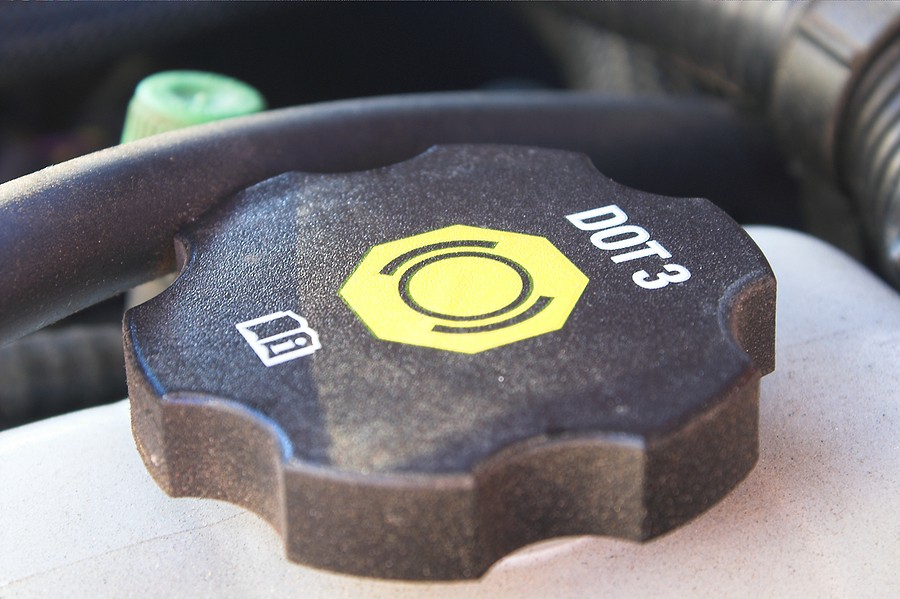There are many types of fluids in your vehicle, and the brake fluid is one of the most critical ones. This fluid is responsible for critical brake functionality, so its quality is important.
Since the brake fluid has a very sensitive and critical system, it's extremely important to know how to check its quality and when it needs a replacement. But how can you tell if your brake fluid is bad?
This article will explain what brake fluid is, what signs to look for if it's gone bad, and how to replace it. We'll also cover some frequently asked questions about brake fluid. Read on for more details on “How to know if your brake fluid is bad?”

What is brake fluid, and what does it do?
Brake fluid is hygroscopic, which means it absorbs water from the surrounding atmosphere. Because of this, brake fluid tends to break down over time and with use. Bad brake fluid can cause brake system failure and even accidents.
There are two types of brake fluids: mineral-based and silicone-based.

Mineral-based brake fluid
Mineral-based brake fluid is traditional and contains glycol ethers (a type of alcohol) for a quick response in the braking process and compatibility with most vehicle materials. Still, this kind becomes contaminated faster than silicone-based due to its chemical structure.
Silicone-based brake fluid
Silicone-based one has a better braking response when the brakes are applied in wet conditions. It causes less vapor when used, allowing any vaporized moisture to return to liquid form and not to remain in the braking system.
Brake fluid also reduces brake fade by adding more boiling points, making it safer for drivers to maintain any speed during their journey.
How To Know If Your Brake Fluid Is Bad?
Since the brake fluid plays an important role in your vehicle, keeping tabs on the brake fluid quality is important. In addition, you should know how to check if your brake fluid has gone bad because it might need a replacement sooner than you think.
When brake fluid goes bad, there are a couple of signs to look out for. Signs that your brake fluid is bad:
1. Low level in the master cylinder
If there is not enough brake fluid in your vehicle's master cylinder, this can affect its performance. The underinflated master cylinder can make the brakes fail and cause other problems like poor braking performance, leading to an accident or injury. So check your brake fluid level each time before hitting the road.
2. Rusty color
The Rusty color of the brake fluid means that it has turned into calcium-based crystals, which form when moisture mixes with the alignment of mineral particles in the brake fluid (hydrolysis). These types of crystals cannot perform their function as they accumulate on specific parts where they might damage your braking system. If you want to know how often you change your brake fluid, you should replace it at least once every two years.
3. High boiling point due to low quality
Low-quality brake fluid may have a boiling point of fewer than 290 degrees Fahrenheit. The boiling point should be higher as it ensures the performance of your braking system.
4. Dirty brake fluid
Dirty brake fluid shows signs of contamination or moisture, which can cause problems with the brake system and lead to other issues. Your vehicle's brake pad has special channels to indicate how much effort you need to apply for complete stopping. If it's dirty, it will not provide accurate readings, affecting the final results after braking.
5. Low viscosity due to low quality
Low-quality brake fluid is always thin in viscosity, whereas a high-quality one should be thick enough to perform better on a wet road. So if there is no viscosity at all, you'll have a hard time stopping on wet roads or in severe weather conditions.
6. Wrong “viscosity” mixture of the brake fluid
A mixture of different viscosities of brake fluids is never recommended as they can cause unpredictable braking problems if not checked regularly. Mixing low and high viscosity may also reduce the boiling point, which could permanently damage your braking system.
7. Metallic noise when applied
If you hear any metallic noises after applying brakes more than once, it means there is air inside your hydraulic system, which is a sign of having a bad brake fluid or moisture, depending on what you heard first.
So change your master cylinder with a new one if the sound is metallic before applying pressure to make sure yours is a brake fluid issue.
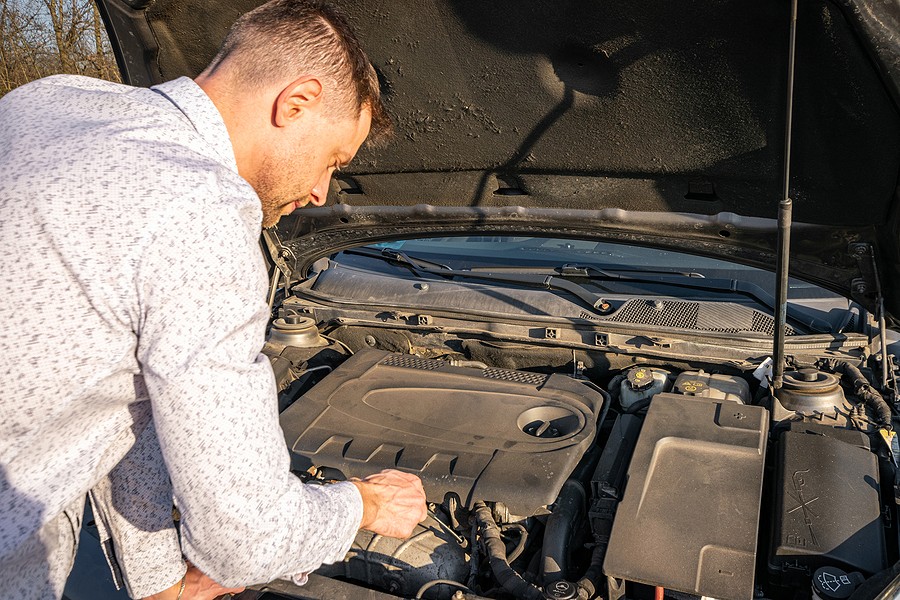
8. Overheating after driving at high speeds
The brake system works by converting your car's energy produced during applying brakes to slow your vehicle down and protect the drivers, passengers, and other people around you from any accident or damage.
And overheated braking means that there will be no good performance in this case, and the collected minerals may wear out the parts of your braking system, which results in additional costs for their replacement (if not replaced on time).
So avoid driving fast, especially in heavy traffic conditions to ensure your brakes are working properly without overheating them. Also, checking their temperature using a pyrometer can tell you whether they're overheated or not.
9. Low steering sensitivity
The sensitivity of your steering wheel depends on the performance of your braking system, and if it is not working properly, you'll have a hard time driving faster than ten mph. So before changing the master cylinder, ensure that it's not because of the low-quality brake fluid used, which may be affecting your sensitivity severely.
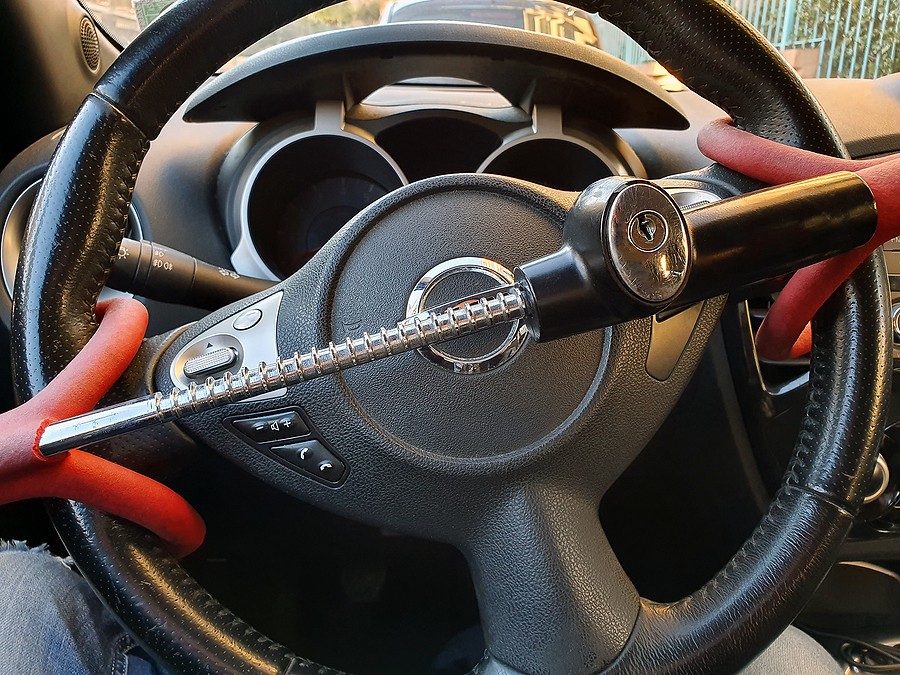
10. Oily stains on wheels or inner sides
Oily stains on the wheels mean too much moisture in the brake fluid, which has turned into oil due to corrosion and other conditions like dryness, heat, etc. If you see oily stains on any part of your vehicle's inner side, like doors or seats, leave them for checking by an expert as they can damage anything if left untreated for a longer time.
How to check if your brake fluid needs replaced?
Sometimes we might suspect that the brake fluids need to be replaced. First, however, it's important to further confirm the issue by inspecting the brake fluid.
The good news is that there are simple steps you can perform to inspect the brake fluid and confirm it needs replacement, including:
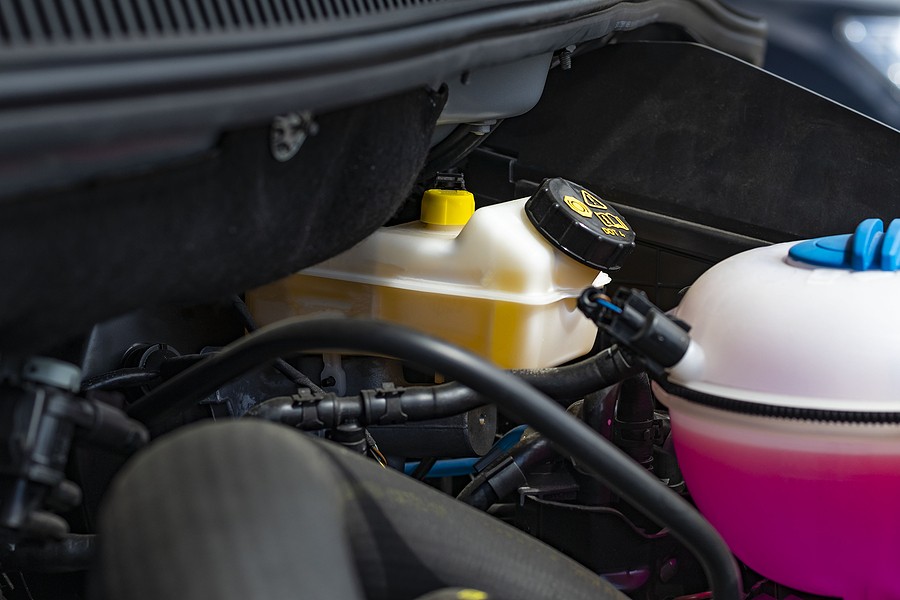
1. Visually inspecting brake fluid
Take a look at your master cylinder reservoir and check to see if the paint is peeling, bubbling, or any cracks on the reservoir. If so, this is a good indicator that it needs replacement.
2. Take a look at brake fluid color
Ideally, your brake fluid's color should be clear and not dark brown or black if you have been using it for more than one year. However, it might also depend on the manufacturer as most of their recommended brand-specific colors may vary from car to car or country to country, even though they're mostly orange or pinkish in most cases.
3. Smell brake fluid
It's necessary to smell your brake pedal after applying brakes to find out whether they're oily or smoky, which can indicate moisture problems in them, making them lose their cooling ability and effectiveness greatly.
4. Inspect brake fluid for proper boiling point
If your brake pedal feels spongy or if it sinks too low after applying brakes, this indicates that the brake fluid is bad and needs replacement.
5. Check brake fluid level
If you think there might be some problem with your vehicle's braking system, check the brake fluid levels before taking your car to a mechanic. This will help them troubleshoot the issue faster than if they were unaware of it beforehand. Also, just like all other fluids in your car, you must keep checking it regularly to ensure that its levels are fine at all times, especially before/after long drives or just after starting up your engine .
Frequently asked questions about brake fluid.
This section provides you with some frequently asked questions about brake fluid that you may wish to know the answers to before buying any brake fluid for your car or just replacing them.
What happens if the brake fluid is dirty?
If your brake fluid is dirty, it can affect braking performance as the dirt may stick to the lining of your brakes and make them “grab” or become less effective. Such a problem will also worsen over time if not checked timely.
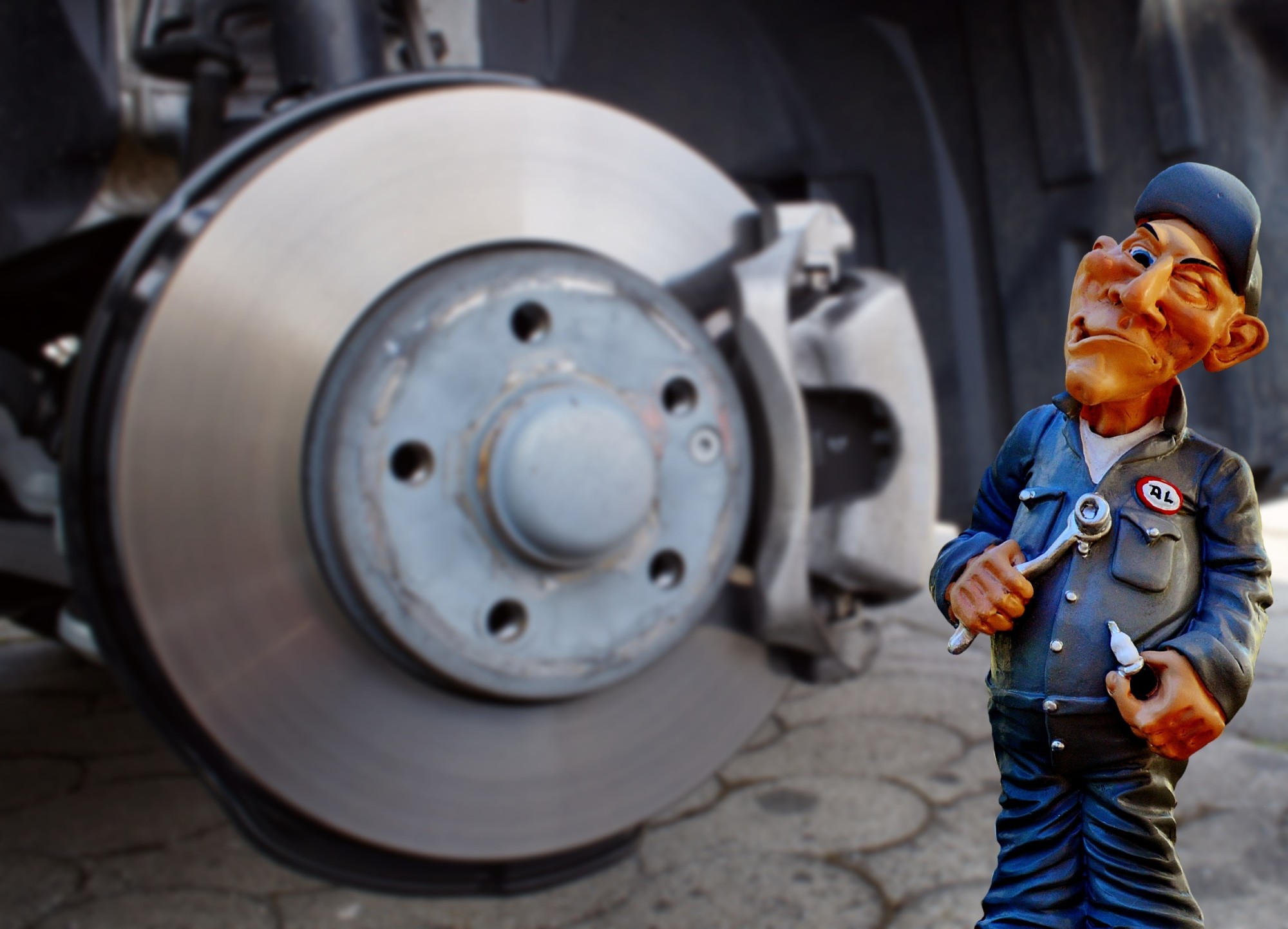
What does bad brake fluid feel like?
The brake fluid may feel slimy, oily, or have a bad odor most of the time.
Why do you need to replace brake fluid?
Brake fluid is subjected to high temperatures that can change its chemical makeup over time, making it harmful to use with your braking system. This is why it needs replacement from time to time as well.
How does brake fluid work?
Brake fluid is used to stop or slow your vehicle by converting the kinetic energy into heat through friction between your brake pad and rotor. This is why the temperature within your car's braking system must remain in control at all times for proper performance.
What happens if the brake fluid is not changed?
If your brake fluid is not changed regularly, it can leak from the hydraulic system, causing a pressure drop that is dangerous most of the time, especially when you need to stop your vehicle quickly.
How often should I replace my brake fluid?
This depends on how frequently you use them, and most manufacturers recommend changing them every four years or after about 40,000 miles of driving.
What happens if the brake fluid is overfilled?
Overfilling your brake fluid can cause internal damage to the hydraulic system and more pressure, which will not help you stop your car any faster. It can also lead to leaks developing in the braking system pretty easily.
How do I add more brake fluid?
You can add more brake fluid by simply removing the cap from your master cylinder and adding fresh fluid.
What type of brake fluid should I use?
Your car's manufacturer will most probably recommend a specific kind of brake fluid that you need to use for replacement which you can check before buying any, but in general, you should look for DOT 3 or DOT 4 brake fluids for most cars.
What does a low fluid level in brakes mean?
Like all other fluid levels in your car, you need to keep checking the brake fluid level regularly to ensure that it doesn't run out before taking your vehicle to a mechanic who can check the problem and add more if needed.
What is DOT 3 brake fluid?
DOT 3 brake fluid is the most commonly used kind of brake fluid in most cars today and is recommended by most manufacturers to check with them before buying any.
What is DOT 4 brake fluid?
DOT 4 brake fluids are better than DOT 3 but have a shorter shelf life, resist more heat and pressure, and cost more. However, most manufacturers still recommend using only DOT 3 or DOT 4, which you can check with them before buying any.
How much does it cost to replace brake fluid?
The average cost to change the brake fluid in cars is about $50, which you need to pay for labor and equipment.
You can fit new brake fluid at home by yourself using specially designed inexpensive tools. However, if the hydraulic component needs replacement or repair, this will vary depending on how severe the damage is and how long it takes to find a replacement part for your car model.
Conclusion
Brake fluid is an important part of your car's braking system, and it needs to be checked regularly for dirt, low fluid level, or any other damage. If you're unsure how to check your brake fluid or what to do if there's a problem, we've answered some of the most commonly asked questions here.
Always consult with your car's manufacturer before replacing any brake fluid to ensure you're using the correct typ

